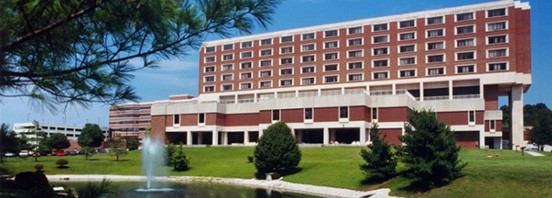by Bonnie Rochman
Time, November 3, 2010
After 10 years of marriage ended in divorce and no children, Dr. Julie Lorber knew she had to take extreme measures if she ever hoped to become a mother. So at age 35, Lorber, now 39, elected to remove a portion of her right ovary to have it frozen for future use. She froze both the tissue and, by default, her biological clock, joining a trickle of highly educated professional women who are choosing to skirt biological limitations in pursuit of a someday family.
For Dr. Lorber, from O’Fallon, Ill., egg preservation wasn’t realistic because it can involve multiple hormonal stimulation cycles, and she was in the middle of a rigorous surgical residency. Nor did she have a partner with whom to freeze embryos. But fast-forward, and now she’s got a boyfriend, a plan to get married and designs on a baby. After the first of the year, she plans to have her frozen tissue thawed and transplanted. “I think there should be no controversy,” says Lorber, now a general surgeon who laughingly tells her boyfriend that “the babies are over there” when they pass by the St. Louis hospital where her tissue is cryopreserved. “Our society is so focused on career, and that’s what I focused on because I had to. I’m thankful I had an option to do what I did because now children are a priority in my life.”
At last week’s meeting of the American Society for Reproductive Medicine, Sherman Silber, the fertility specialist who performed Lorber’s surgery and serves as director of the Infertility Center of St. Louis at St. Luke’s Hospital, set tongues wagging when he told colleagues that banking ovarian tissue from otherwise healthy young women who are simply not ready to have children yet should be encouraged. It’s the equivalent of stopping the tick-tock of maternal hormones: a 25-year-old woman who stores tissue [news video] has a veritable motherlode of thousands of 25-year-old eggs ready to be transplanted down the road when she might be infertile due to age. Whether that’s in 10 or 20 years later is up to her. Biology be damned.
In the past decade or so, Silber – like an increasing number of fertility doctors — has frozen ovarian tissue from about 60 women diagnosed with cancer to prevent its treatment from leaving them infertile. He successfully reintroduced tissue intoAmy Tucker [news video], the first U.S. cancer patient to give birth [news video] via ovarian transplant; her son was born in May. Worldwide, the technique has yielded more than 20 babies. Silber has also frozen tissue or eggs from nearly 80 would-be mothers who seek to extend their child-bearing years who do not have cancer. Removing ovarian tissue [technical video], done laparoscopically, he says, is a “very robust and easily transferable procedure.” Silber’s success with Tucker — underscored by a thumbs-up from Hillary Clinton — has given him the confidence to try to convert his profession.
What’s Hillary got to do with it? Two years ago, shortly before the election, Silber attended an intimate breakfast with Hillary Clinton for top Obama fundraisers. She asked what the eight attendees did for a living. He likes to recount how he told her of his work and explained infertility is on the rise as women increasingly delay child-bearing until their 30s and 40s.
“We can freeze ovaries or eggs for cancer patients,” he told her, “but there’s a lot of ethical debate in our society about whether we should do this in general.”
As Silber recalls, Clinton interrupted him: “Look, this is a no-brainer.”
So far, only a modest number of women have heeded the pitch on Silber’s website that “a woman now has the option to breathe more easily, and not feel rushed into marriage or pregnancy before she is ready!” Among them is a 38-year-old woman who froze tissue in order to help her space out her children three years apart. (She got pregnant with her first naturally but anticipates needing assistance by the time she attempts to conceive baby No. 3 at age 44 or so.)
Eventually, Silber believes that freezing ovaries for non-cancer reasons will become as acceptable as the once-controversial in vitro fertilization (IVF) techniques are today. Years ago, IVF was both ridiculed and riddled with controversy. Now it’s standard fertility treatment fare. Could tinkering with a woman’s biological clock share that same destiny?
Silber is hopeful, yet realistic. “It is considered a little unusual,” he says.
See also:


